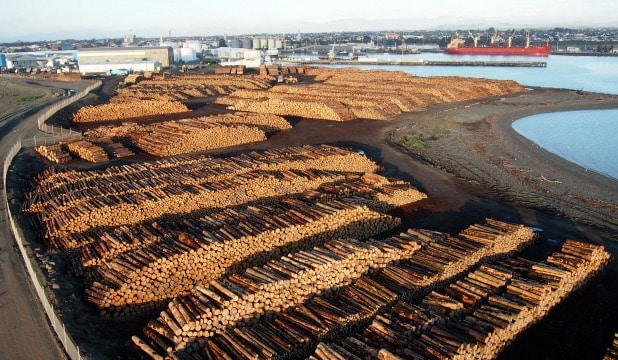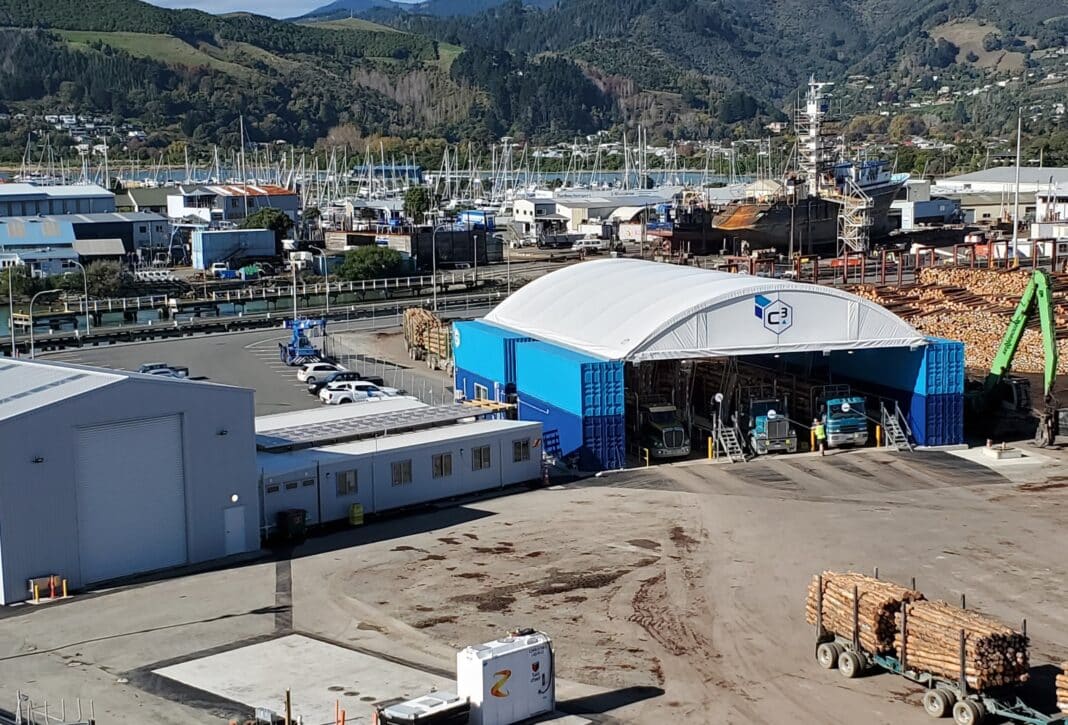A resumption of the log trade to India could be on the cards if a trial period granted by MPI proves successful.
As reported in Farmers Weekly, the NZ Ministry of Primary Industries (MPI) updated its phytosanitary requirements for Indian log exports.
Under the trial, which will run from September 15 to October 31, MPI will allow fumigation of logs in ships held on arrival in India instead of treatment before sailing from NZ.
The decision follows bilateral trade talks between NZ Trade and Export Growth Minister Damien O’Connor and Indian Minister Shri Piyush Goyal from the Indian Commerce and Industry last month.

According to the NZ Ministry of Foreign Affairs and Trade, logs and wood products are among the key drivers of the relationship—still, past concerns with using methyl bromide on products led to a restriction on trade.
Wood Central last month reported that the disagreement over methyl bromide is the major roadblock to the resumption of trade.
From February 2022, the NZ Ministry of Primary Industries has mandated the recapture or destruction of methyl bromide emissions at the end of fumigation.
The decision created issues with trade
India previously stipulated that methyl bromide must be used for log imports from New Zealand.
Last year, NZ Forest Owners Association President Grant Dodson said the decision led to the collapse of the country’s NZ $250 million, 1.7 million cubic metre export trade with India.
“New Zealand log exports to India fell to only $28 million last year (2021),” he said.
Historic trade compares with NZ’s trade with China – 19 million cubic metres per year – and South Korea – 2 million cubic metres per year.
However, Farmers Weekly reports that the sector would unlikely rush to the Indian market quickly.
“This represents a good opportunity, it’s a good result, but there is still a lot of water to go under the bridge before we see a return to the earlier volumes to India,” Mark Proctor of TPT Forests said.
He suspected most exporters would take a wait-and-see approach to the market, which still represented a relatively small portion of NZ’s 20 million cubic metres a year export trade.

“And it is not likely to return to that 1.7m cubic metre level quickly.”
Shane Olsen, manager of plant exports at Biosecurity NZ, confirmed the update and said the interim option is an opportunity for bulk shipments of logs to resume following the prohibition of ship hold fumigation in NZ that took effect on January 1 this year.
“The interim option is available until October 31 this year to enable India to consider alternative treatment options for NZ logs to India,” he said in a written response.
Forestry sector insiders have confirmed that the export of unfumigated logs to India remains risky, with uncertainty over the exact cost an exporter’s log shipment may face on arrival in India to have the load fumigated.
Is EDN fumigation a viable alternative?
In April 2022, the New Zealand Environmental Protection Authority approved the EDN fumigation of export log stacks.
Under the EPD ruling, ethanedinitrile can be used as a replacement for methyl bromide to fumigate logs in New Zealand.
According to the NZ Forest Owners Association, EDN is a far more environmentally friendly fumigant.
“It is effective on insects and pathogens but breaks down quickly in the environment,” they said in a media statement.
“It is neither a greenhouse gas nor depletes the ozone layer.”






